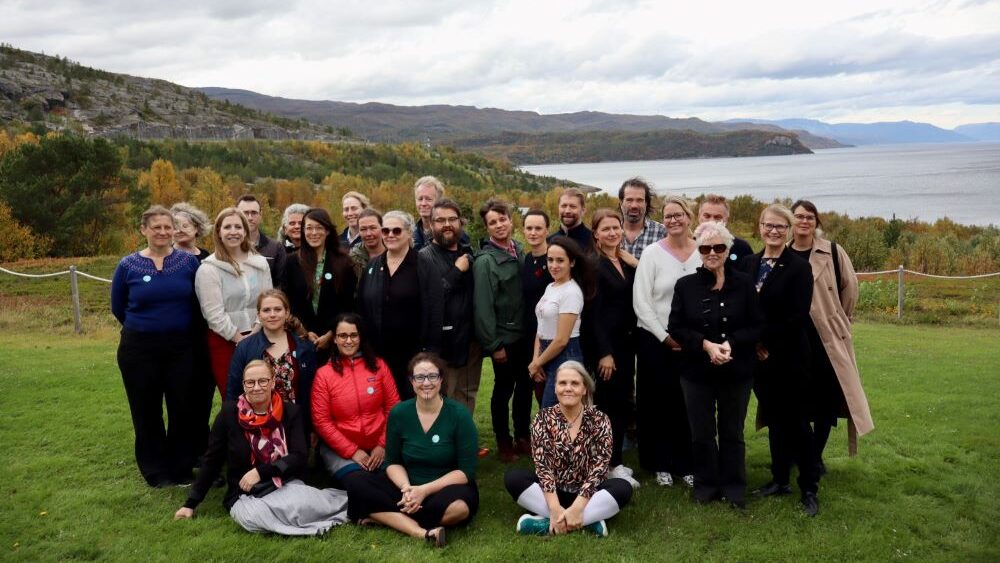
The fourth cohort of Fulbright Arctic Initiative (FAI) scholars kicked off their 18-month program with a week of meetings in Northern Norway from September 8-14, 2024, beginning in the city of Tromsø. The twenty scholars—from Canada, Denmark, Greenland, Finland, Iceland, Norway, Sweden, and the United States—had the opportunity to plan for their collaborative, multi-disciplinary group research through workshops on intercultural communication, science diplomacy, and the preparation of policy briefs. They also met with stakeholders and prominent Arctic experts in Norway to gather insights in shared priority areas of regional security, and health and well-being. This is the first of three working meetings for the FAI cohort; they will reconvene in Greenland in 2025 and have a final session in Washington, D.C. in 2026 where they will present actionable policy recommendations based on their work.
Deputy Mayor of Tromsø, Sigrid Bjørnhaug Hammer, welcomed the Fulbrighters to the city hall and noted the importance of Tromsø as the European Youth Capital in 2026 – the first Arctic city to receive this designation. She explained that this designation allows Norway’s “youngest” city to demonstrate the history of civic engagement among Tromsø’s youth and the strategic importance of Arctic youth in the future.
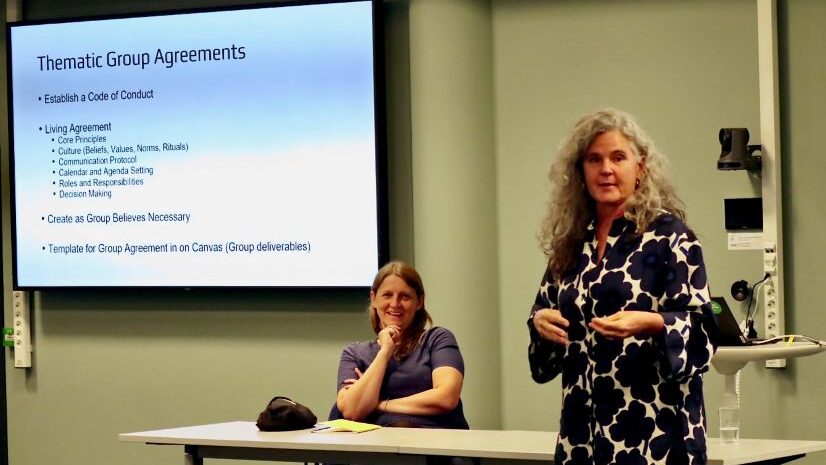
Inspiring the Next Cohort of Intellectual Collaborators
Co-lead Scholars Dr. Lill Bjorst and Dr. Elizabeth Rink, joined by Fulbright Norway’s Executive Director Dr. Curt Rice, initiated the first meetings of the Fulbright Scholars’ thematic groups. They advised the scholars to “think of the next 18 months as a gift . . . to innovate and create.” Ketil Lanert Hansen, a Fulbright Arctic alum from Norway, also encouraged the new cohort to think long-term about the connections they forge now, noting that he recently had a reunion with his Fulbright Arctic Cohort and continues to collaborate with his Fulbright research exchange host in Denver.
The Scholars were introduced to experts at the Arctic University of Norway (UiT), such as Dag Rune Olsen, who explained UiT’s commitment to producing “knowledge of and for the Arctic.” Various experts from UiT helped the Fulbright Scholars contextualize their research methods and policy outcomes in the guiding principles of Norway’s Truth and Reconciliation Commission, which emphasizes that policies must be developed with the inclusion and positive impact on the Arctic’s Indigenous population in mind.
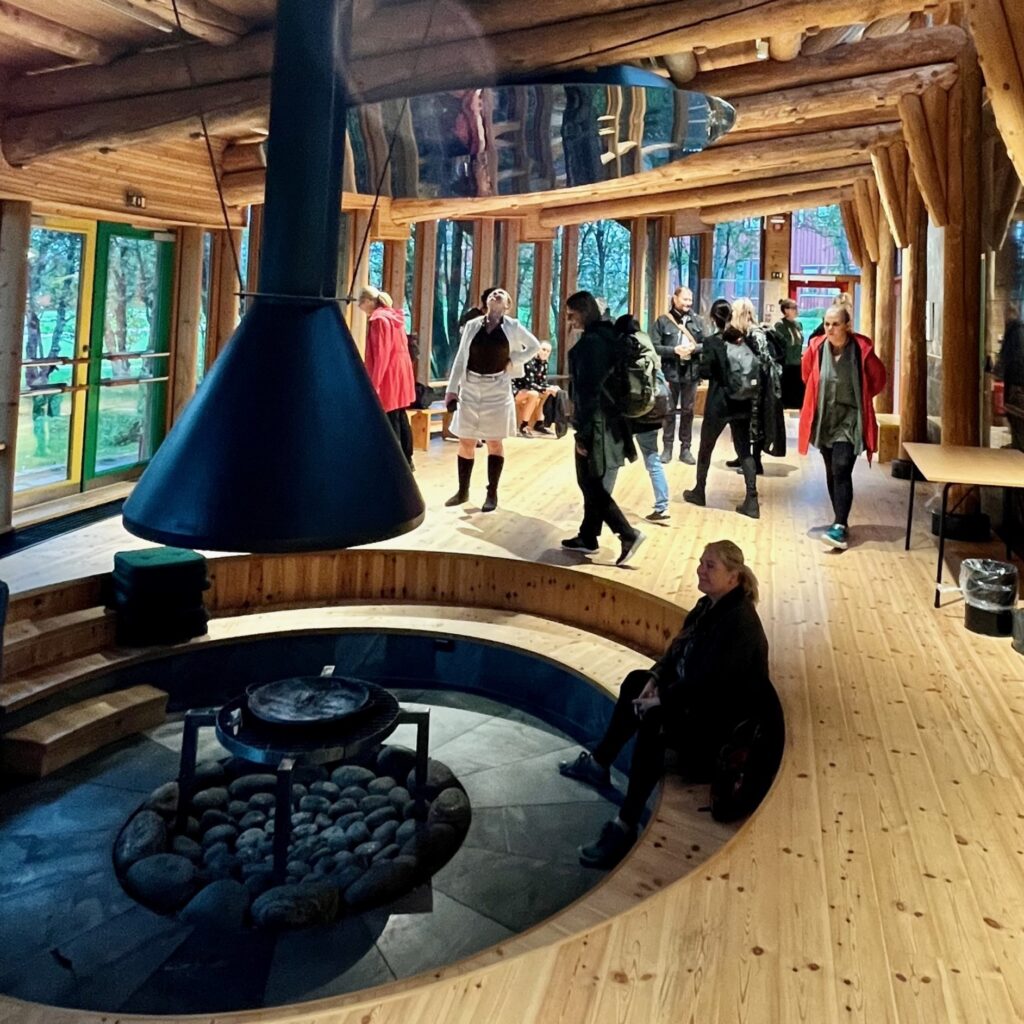
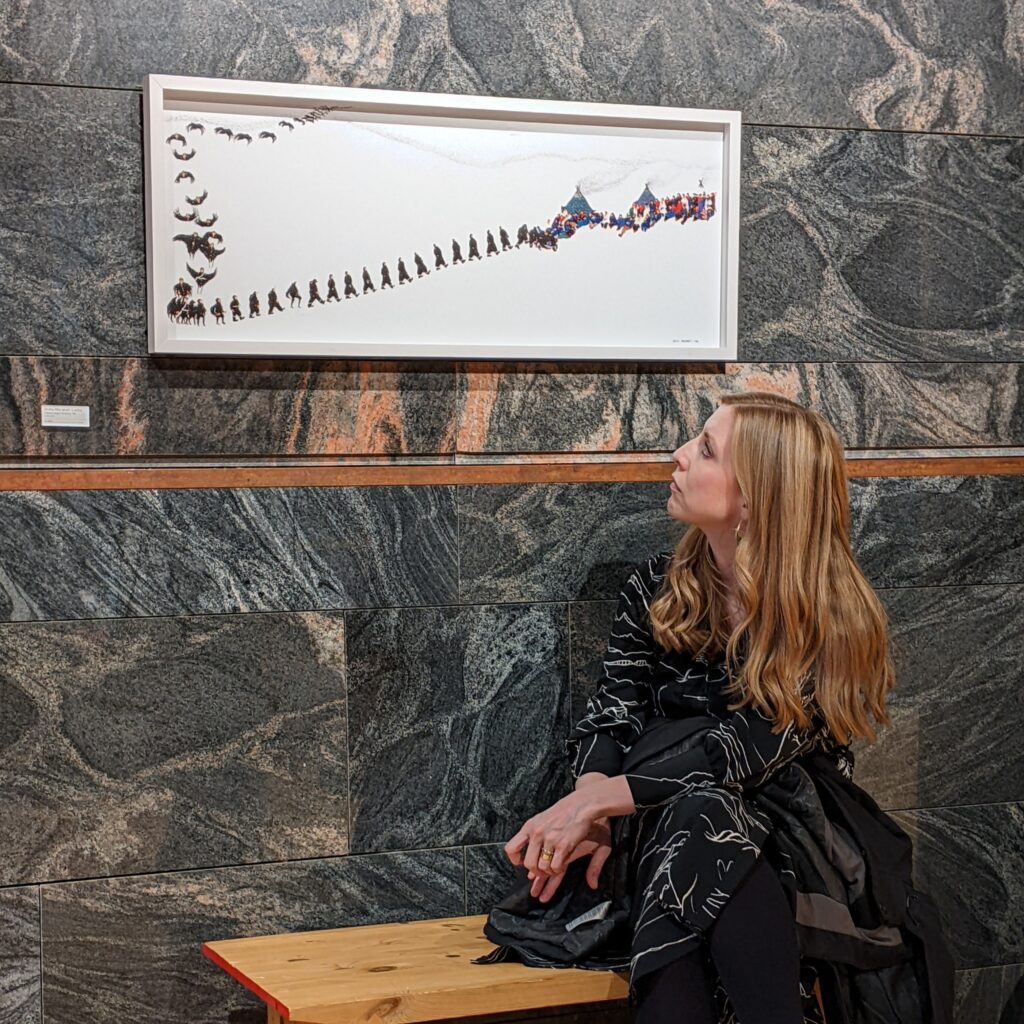
Collaboration within the Arctic Framework
Dr. Joël Plouffe, Senior Advisor for the Arctic Council Secretariat, and Anna Degteva, Executive Secretary of the Indigenous People’s Secretariat, explained how Arctic Council states work together at the Fram Center. Dr. Plouffe and Degteva highlighted the Arctic Council as a “unique model in international relations” that facilitates cooperation among both Arctic States and Indigenous communities, noting it is the only international body with accredited Indigenous decision-making status.
The Fulbright Scholars heard from the Norwegian Polar Institute (NPI), a Norwegian government directorate, on its role in topographic and geological surveys in Norway and Antarctica. Arild Sundfjord, Leader of NPI’s Arctic Ocean Program explained how his research on long-term sea ice monitoring provides answers on why the ice cover is diminishing.
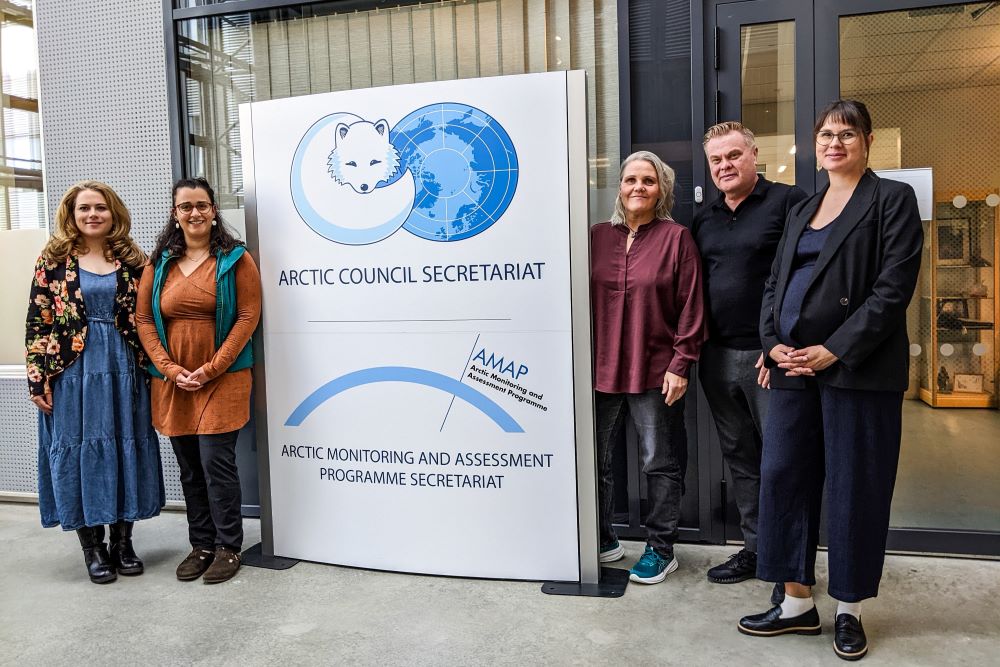
Delving Deeper into the Heart of Sápmi
The group travelled to the Finnmark region, bordering Sweden, Finland, and Russia, to learn more about avenues for collaboration with Indigenous peoples on research touching topics of security, the environment, and health and well-being. Dr. Jan Erik Henriksen, a professor of social work and leader of the Indigenous Voices research group at UiT, presented the “two-eye see” approach, incorporating one “eye” from Sámi knowledge and one “eye” from western knowledge. Henriksen emphasized “we cannot save the globe without Indigenous knowledge.” Alta’s Vice-rector Bente Haug introduced the university’s role in serving regional needs, including training nurses in Sámi languages and developing a new security program preparing for planned increased military presence by 2036. Dr. Tore Christoffersen, associate professor of sports science at UiT, provided a model for community-based research in his talk about the Finnmark Epidemiological Study of Teen and Child Health.
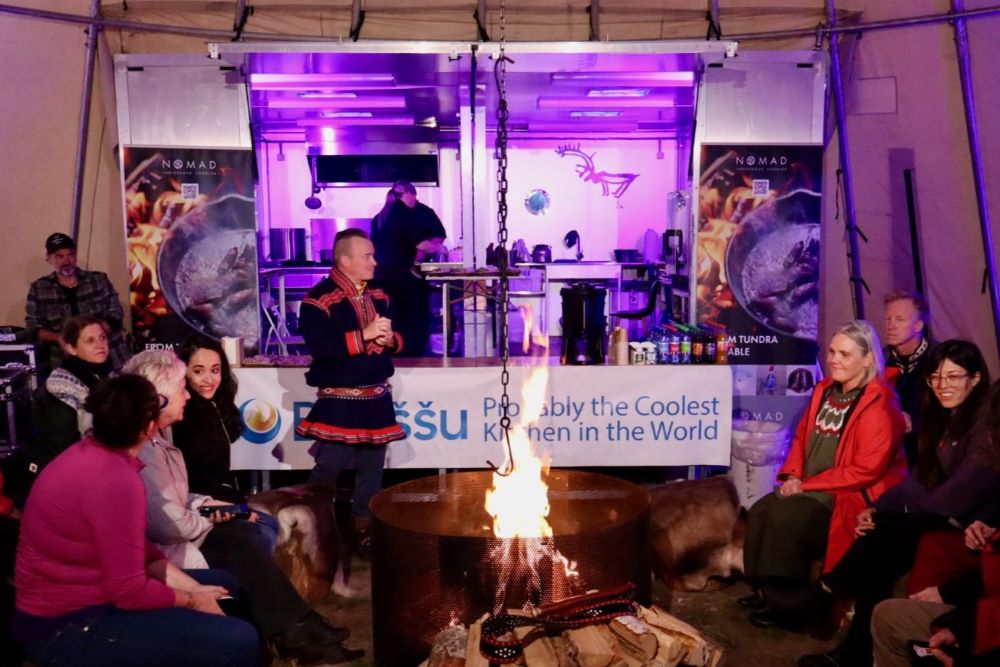
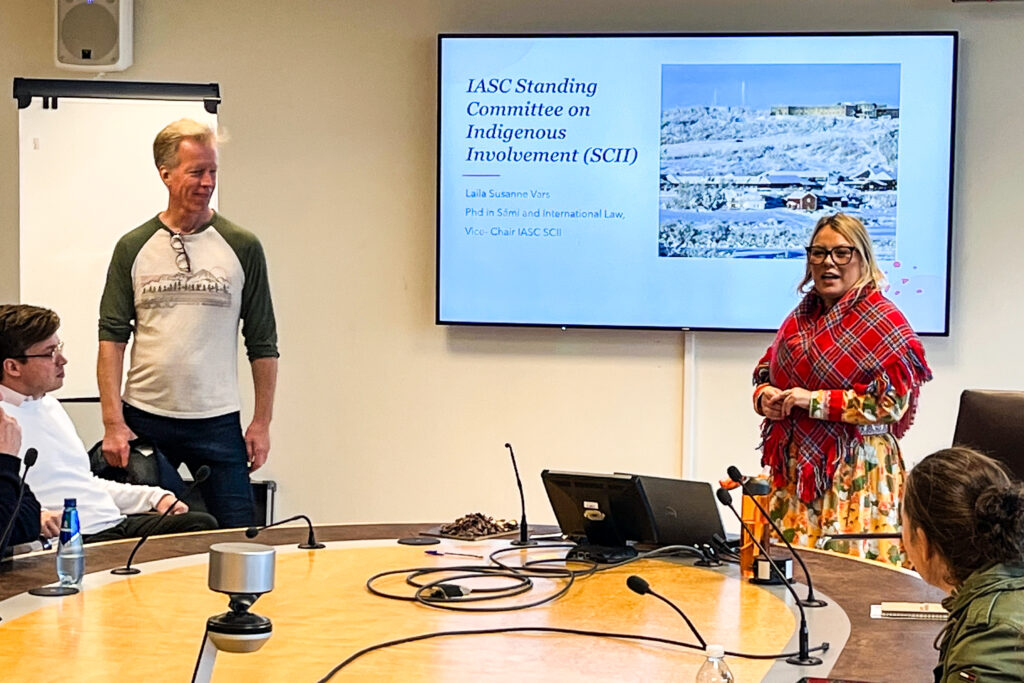
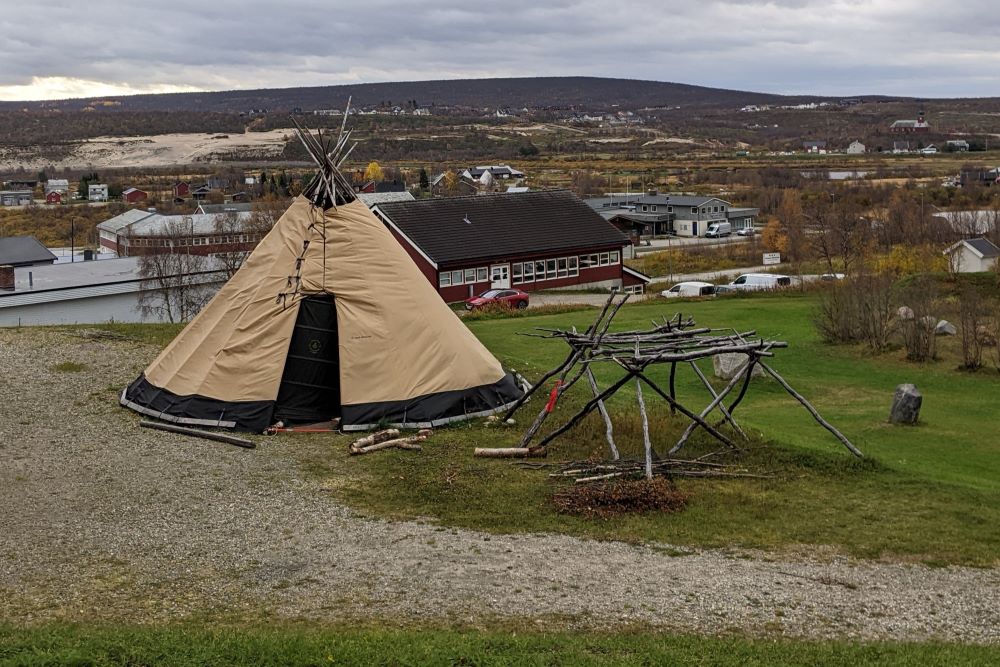
The scholars visited the Sámi University of Applied Sciences in Kautokeino, Norway, where they met with Pro Rector Samuel Valkeapää and Dr. Laila Susanne Vars of the International Arctic Science Committee (IASC). Dr. Vars serves as the senior advisor to the Sámi Parliament and is the first Sámi woman with a doctorate in international law. Valkeapää explained that the Sámi college, established in 1989 in the same year as the Sámi Parliament, offers an “opportunity for Indigenous scholars to develop their own research practices based on Sámi traditional knowledge and in Sámi language.” Dr. Vars highlighted the IASC’s ethical guidelines for research involving the Sámi, drafted through a six-year collaboration with the Sámi people.
In Kautokeino, over a meal of smoked reindeer, the Fulbright Scholars listened to Secretary General of the Association of World Reindeer Herders and the Executive Director of the International Centre for Reindeer Husbandry, Anders Oskal. Oskal, a Sámi and an active reindeer herder, provided an inclusive perspective of how geopolitical tensions and border closures negatively affect Indigenous life, kinship ties, migratory patterns, and sustainable food practices.
In Karasjok, seat of the Sámi Parliament and the heart of Sápmi, the Sámi cultural region, President Silje Kristine Muotka connected current political issues to the research areas of the FAI cohort, such as Norway’s shift to green energy, NATO activity in Finnmark, and changing reindeer herding.
“Land is much more than people see,” said President Muotka, emphasizing the impact of the global geopolitical landscape on the Sámi. She spoke about collective approaches to solving shared challenges, including the upcoming International Indigenous Salmon Peoples’ Gathering, which brings together Indigenous Peoples from around the circumpolar north to address over-fishing.
The week ended with reflections and renewed energy for scholarship and circumpolar collaboration as the groups begin the work ahead.